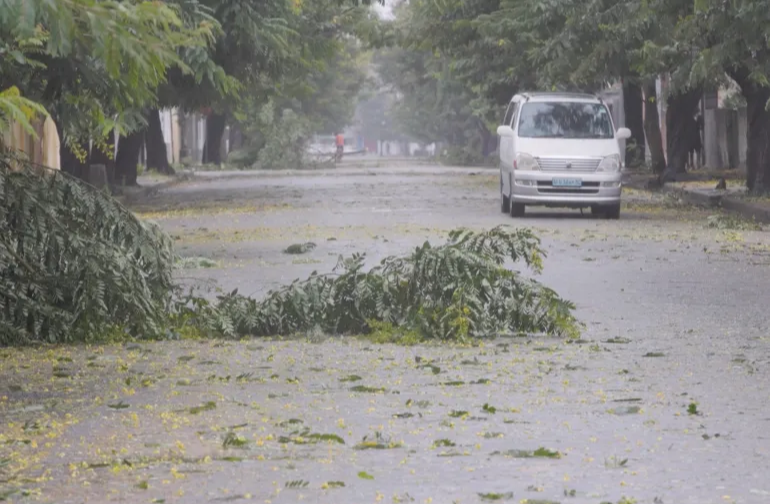
Maputo, March 12 (RHC)-- Intense rains and winds started to lash parts of Mozambique as Tropical Cyclone Freddy bore down on the country for the second time in as many weeks, authorities have said. Freddy slowed its advance towards the southern African nation and was 60 kilometres (40 miles) off the coast on Saturday morning, according to the Mozambique National Meteorology Institute (INAM).
“The system reduced its speed from seven to four kph, thus delaying its entry,” INAM said in an update. “Heavy rains and very strong winds” were affecting the central provinces of Zambezia, Manica and Sofala, it added. The cyclone, one of the strongest storms ever recorded in the Southern hemisphere, previously made landfall on February 6th. While satellite data shows it seems to have stalled offshore, residents have taken precautionary measures.
“The town is a no-go zone; no shops or businesses open. Everything is closed. We’re locked up,” resident Vania Massingue said by telephone from her house in the port town, which is located in the country’s Zambezia central province.
After swirling for 34 days straight, the weather system is likely to have broken the record for the longest-lasting tropical cyclone. According to the World Meteorological Organization, the previous record was held by a 31-day hurricane in 1994.
“I can see some houses with roofs torn apart, broken windows and the streets flooded. It’s really scary,” said Massingue, who works for a local environmental charity.
State channel TVM reported that the power utility had switched off the electricity completely as a precaution, and that all flights were suspended.
The cyclone is slow-moving, which meteorological experts have said meant it would pick up more moisture off the sea, bringing heavy rainfall.
Around the world, climate change is making hurricanes wetter, windier and stronger, scientists have said. Oceans absorb much of the heat from greenhouse gas emissions, and when warm seawater evaporates its heat energy is transferred to the atmosphere, fuelling more destructive storms.
More than 171,000 people were affected after the cyclone swept through southern Mozambique last month, bringing heavy rains and floods that damaged crops and destroyed houses, with OCHA putting its death toll at 27 so far – 10 in Mozambique and 17 in Madagascar.
More than half a million people are at risk in Mozambique this time, particularly in Tete, Sofala, Nampula and Zambezia provinces.

